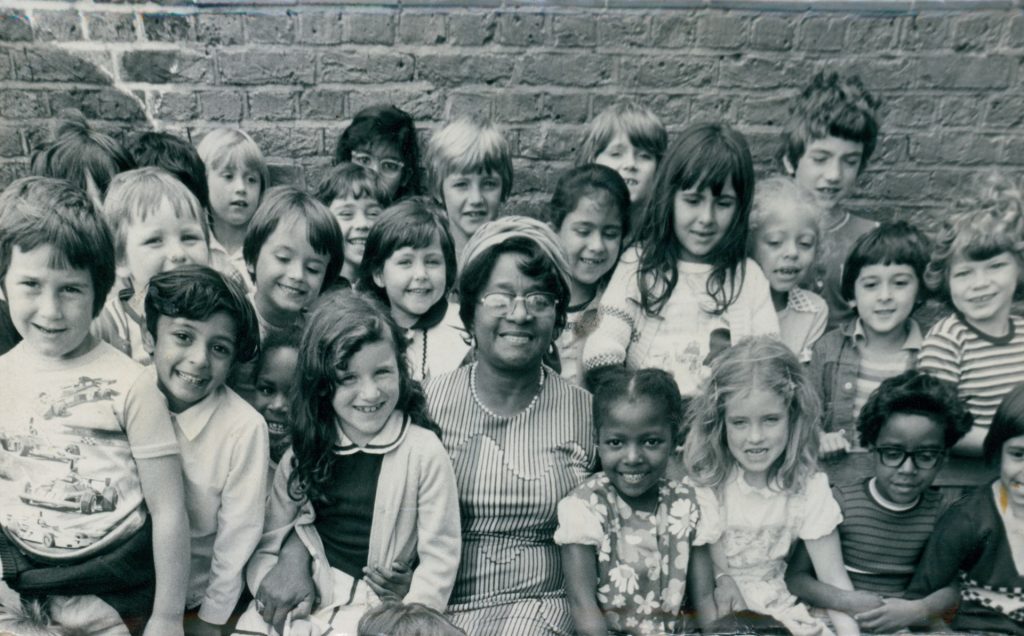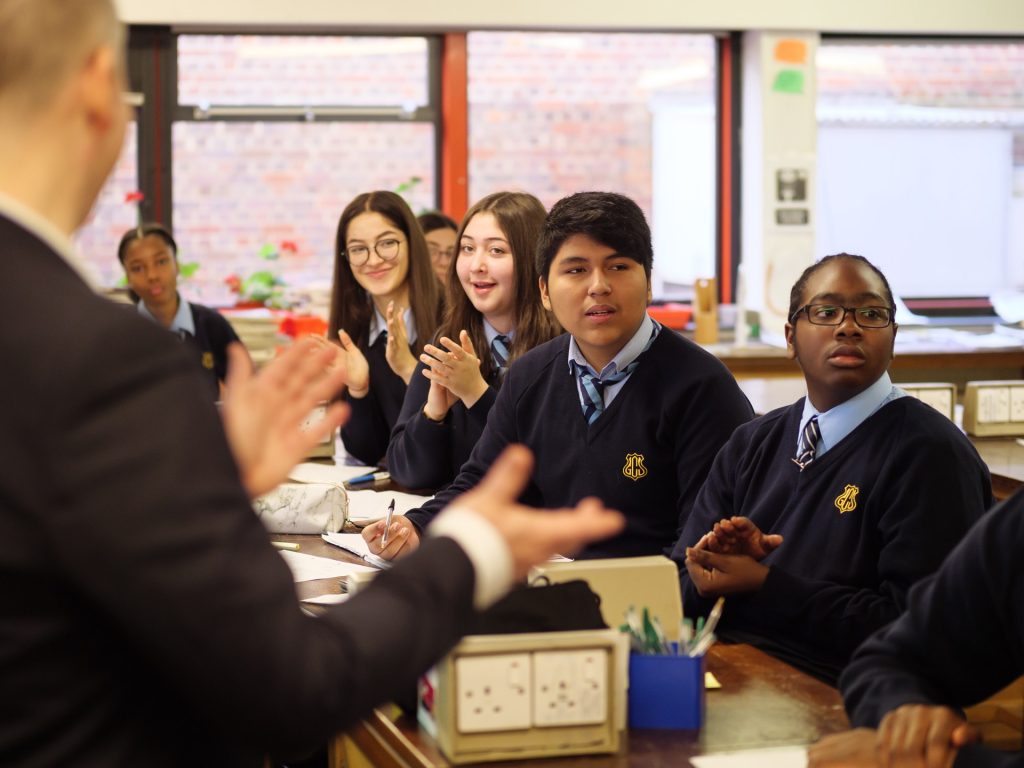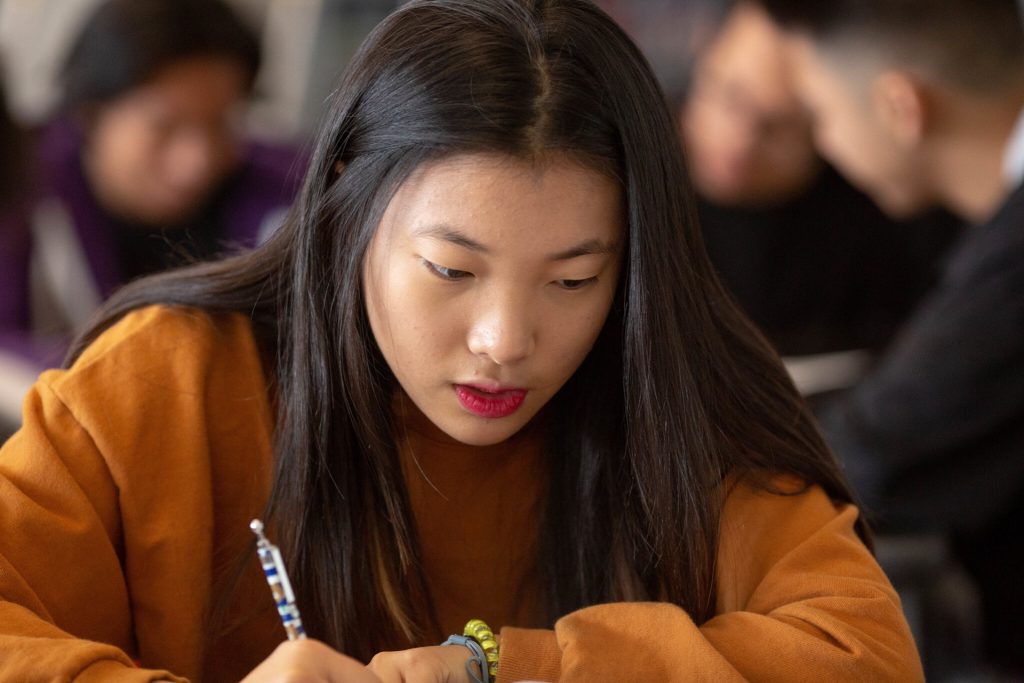IOE at 120: Empire, decolonisation, modernisation and dislocation – 1952-1962
By Blog Editor, IOE Digital, on 24 June 2022

Beryl Gilroy at Beckford primary school in north London in 1971. Photograph: Beryl Gilroy Estate
This blog is the sixth in a series of 12 exploring each decade in IOE’s history in the context of the education and society of the times. Find out more about our 120th anniversary celebrations on our website, and follow us on Twitter, Instagram, Facebook and LinkedIn to keep up with everything that’s happening.
Many historical strands weave through the 1950s, but the end of Empire and grappling with what colonial education and decolonisation entailed were key themes at IOE.
Understanding the 1950s at IOE requires trying to bring together two threads: inclusive education for modernising societies and the relationships of colonialism, built on economic and political dispossession associated with slavery, land seizure, economic exploitation, racial discrimination and cultural hierarchy.
The involvement of IOE with Britain’s colonial projects stretches back to the 1920s. A Colonial Department was formally established in 1927, aiming to train teachers and support education policy work for the Colonial Office. In 1952, as part of a series of lectures organised to mark the Golden Jubilee anniversary of IOE, Sir Christopher Cox, educational adviser to the Colonial Office, delivered a lecture celebrating the ‘increasing importance’ of (more…)
 Close
Close








 This blog is the first in a series of 12 exploring each decade in IOE’s history in the context of the education and society of the times.
This blog is the first in a series of 12 exploring each decade in IOE’s history in the context of the education and society of the times. 
